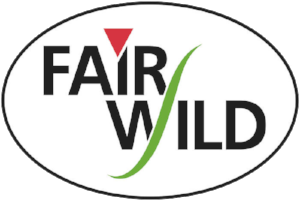Champions of sustainability for wild plant harvesting unite during first ever “FairWild Week”
Cambridge, UK, 21st August 2017–Today marks the launch of the first ever “FairWild Week” - a digital event celebrating the often-overlooked role played by wild plant ingredients in homes, communities and supply-chains across the globe.
The online campaign, organized by the FairWild Foundation in collaboration with TRAFFIC and certification scheme partner Pukka Herbs, will raise awareness amongst consumers about wild plant ingredients and introduce some of the key issues behind sustainable wild plant harvesting.
The week will feature an exciting variety of material, including footage of wild Frankincense harvesting in Kenya, celebrity videos, case studies about key plant species and a “Wild Plant Stories” series highlighting the conservation status and traditional applications of common wild plants.
“We’re extremely excited to launch our inaugural FairWild Week and share the stories behind some of the world’s most amazing wild plant species”, said Bryony Morgan, FairWild Secretariat. “We want as many people as possible to share our appreciation and support for the many, many plants that play such an important role in the lives of millions of consumers and harvesters all over the world.”
Explore the FairWild Week on the FairWild Foundation website for FAQs, existing projects, certified products and more!“The increasing popularity of the natural and organic sector makes it vitally important that the public know what wild plant ingredients are being used in their products, but also whether these are being sourced in a fair, sustainable and ethical way,” adds Morgan.
Raising awareness of this key issue is one of the prime objectives of this year’s FairWild Week, highlighting the fact that although wild plant ingredients are widely used in all manner of commodities, they are often harvested without the proper sustainability guidelines or practices in place.
It is estimated that some 60,000 plant species are used worldwide for their medicinal properties alone. However, wild plant populations are under threat with 1 in 5 plant species thought to be at risk of extinction in the wild [1]. The Soil Association recently estimated the organic beauty and wellbeing sector to be worth up to GBP 61.2 million in the UK alone[2].
Statistics such as these demonstrate the importance of re-establishing a relationship between consumers and the wild ingredients on which they often rely.
Throughout the week FairWild will invite members of the public to test their knowledge on wild plants through the WhyGoWild Quiz[3], find out about FairWild certification projects as well as explore the “wild plant database”.
“Sustainable wild plant harvesting isn’t just about protecting plants”, explains Anastasiya Timoshyna, Medicinal and Aromatic Plants Programme Leader at TRAFFIC, “it’s also about ensuring that local communities are given proper market access to sell their products and reap the rewards of sustainable wild plant harvesting.”
Over 20 companies are now engaged with the FairWild certification scheme, many of whom will also be participating in FairWild Week.
“We hope that this event will resonate with consumers of wild plant ingredients across the globe and inspire them to ask their retailers whether the products they are selling are produced in line with sustainability standards that protect both natural biodiversity and those involved throughout the supply chain”, says Morgan.
Find out more about FairWild Week or get involved on facebook and twitter.
FairWild Week is coordinated by TRAFFIC, on behalf of the FairWild Foundation.
For queries and to participate please contact marcus.cornthwaite@traffic.org.
For media queries please contact richard.thomas@traffic.org
For any questions on FairWild please contact Bryony Morgan secretariat@fairwild.org
[1] Brummitt NA, Bachman SP. 2010. Plants under pressure—a global assessment: the first report of the IUCN Sampled Red List Index for Plants. Kew, UK: Royal Botanic Gardens.
[2] https://www.soilassociation.org/certification/trade-news/2017/uk-organic-market-tops-2-billion/
[3] The WhyGoWild website is managed by TRAFFIC

